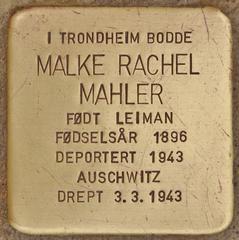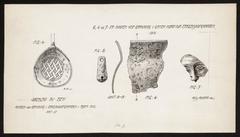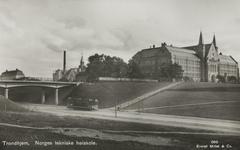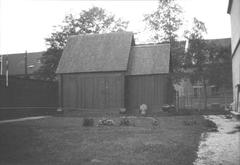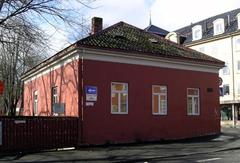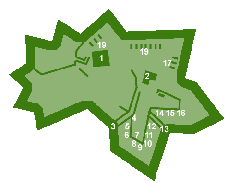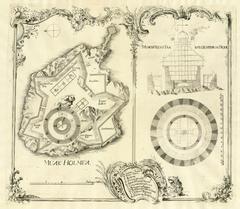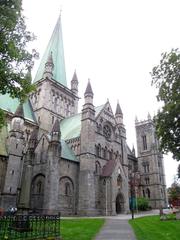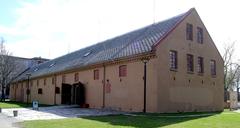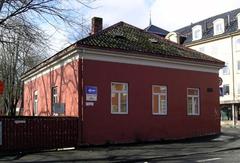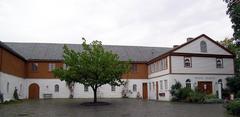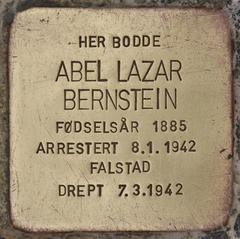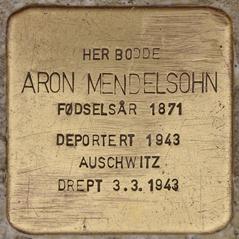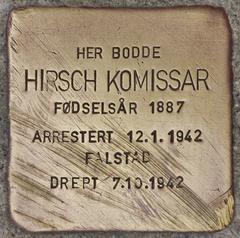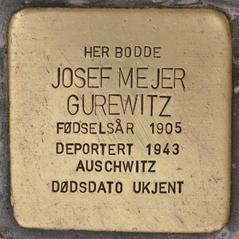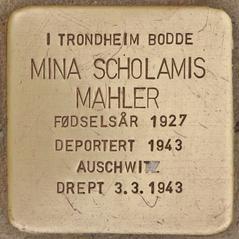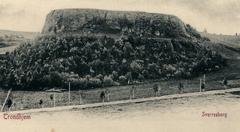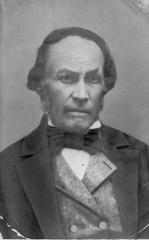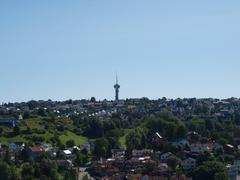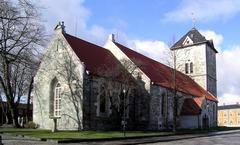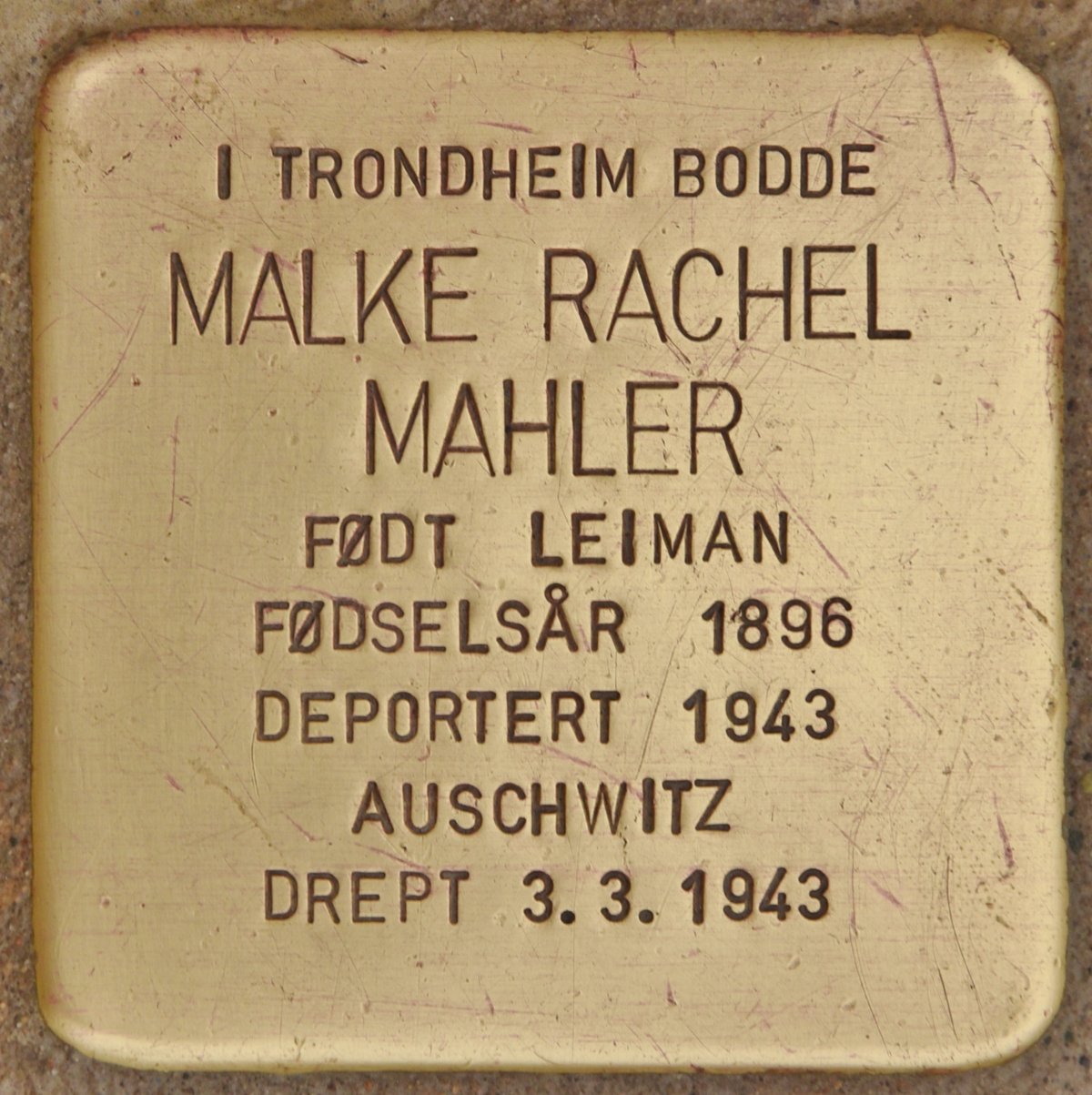
Stolperstein Malke Rachel Mahler: Visiting Hours, Tickets, and Trondheim Historical Sites Guide
Date: 14/06/2025
Introduction
The Stolperstein dedicated to Malke Rachel Mahler in Trondheim, Norway, is a profound memorial linking present-day visitors with the personal histories of Holocaust victims. Stolpersteine—“stumbling stones” in German—are brass plaques set in pavements across Europe, each marking the last freely chosen residence of a victim of Nazi persecution. Initiated by German artist Gunter Demnig in the early 1990s, the Stolpersteine project has grown into the world’s largest decentralized memorial, with over 70,000 stones across 24 countries as of 2025. Each stone restores a name and a story to those erased from history, transforming impersonal statistics into individual remembrance (Stolpersteine.eu, Jewish Heritage Europe, pragueviews.com).
This guide offers comprehensive information about the Stolperstein for Malke Rachel Mahler, its history and significance, visiting hours, accessibility, and related historical sites in Trondheim. Whether you are a heritage traveler, a student, or someone seeking to connect with Trondheim’s Jewish past, this article will help you plan a meaningful visit.
Table of Contents
- Origins and Purpose of the Stolpersteine Project
- Stolpersteine in Norway and Trondheim
- The Malke Rachel Mahler Stolperstein: History and Location
- Visiting Information: Hours, Accessibility, and Etiquette
- Nearby Sites of Jewish and Local Heritage in Trondheim
- Educational and Cultural Impact
- Frequently Asked Questions (FAQ)
- Conclusion and Visitor Tips
- References and Further Reading
Origins and Purpose of the Stolpersteine Project
The Stolpersteine project was conceived by Gunter Demnig in 1992/93 as a participatory, decentralized memorial to Holocaust victims (Stolpersteine.eu). Each Stolperstein is a 10 x 10 cm brass plate inscribed with the victim’s name, date of birth, fate, and—where known—date and place of death. These stones are placed in the sidewalk in front of the victim’s last freely chosen address, making remembrance a part of everyday life.
The project’s ethos is rooted in the Talmudic saying, “A person is only forgotten when his name is forgotten.” By restoring the names and stories of individuals, Stolpersteine transform streets and neighborhoods into living sites of memory, inviting spontaneous engagement and reflection from all who pass by (pragueviews.com).
The participatory nature of the project is vital. Local communities, survivors’ descendants, and schools often become involved in researching, sponsoring, and installing the stones, making remembrance an ongoing and collective process (Stolpersteine.eu).
Stolpersteine in Norway and Trondheim
Norway’s Jewish population was small, peaking at around 2,000 individuals before World War II, mostly in Oslo but also present in cities like Trondheim. During the Nazi occupation, about one-third of Norwegian Jews were deported, with very few survivors (Jewish Heritage Europe).
Norwegian Stolpersteine, known locally as “snublesteiner,” are found in Oslo and smaller cities, including Trondheim. Their presence in Trondheim underscores the project’s commitment to commemorating victims in every locality touched by the Holocaust, regardless of community size.
The Malke Rachel Mahler Stolperstein: History and Location
Malke Rachel Mahler (née Leimann) was born in Poland in 1896 and immigrated to Norway in 1916. Together with her husband Simon Mahler, a Latvian-born trader, she established a Jewish household in Trondheim. The Mahler family lived and ran their business at Kjøpmannsgata 11, a central street in Trondheim (snublestein.no).
During the Nazi occupation, the Mahler family, like many in Norway, faced persecution. Malke and her daughter Mina were arrested in February 1943, deported to Auschwitz, and murdered shortly after their arrival. Simon and other children also perished in the Holocaust. The Stolperstein at Kjøpmannsgata 11 marks the family’s last home and stands as a permanent, public memorial to Malke Rachel Mahler and her family.
Location:
Kjøpmannsgata 11, Trondheim city center
Easily accessible by foot or public transport, and close to major landmarks such as the Nidaros Cathedral and the Old Town Bridge.
Visiting Information: Hours, Accessibility, and Etiquette
- Visiting Hours: The Stolperstein is installed in a public sidewalk and is accessible 24/7, year-round.
- Admission/Tickets: Free of charge; no tickets or reservations required.
- Accessibility: The site is wheelchair accessible. Pedestrian-friendly pathways make it easy to visit.
- Visitor Etiquette:
- Pause to read and reflect on the inscription.
- Placing a small stone or flower on the plaque follows Jewish mourning traditions and is a sign of respect.
- Discreet photography is allowed; please avoid blocking the sidewalk or disturbing the memorial.
Interactive maps and mobile apps like Audiala may help you locate the Stolperstein and access further information (Stolpersteine.eu).
Nearby Sites of Jewish and Local Heritage in Trondheim
- Nidaros Cathedral: Norway’s national sanctuary and an iconic example of Gothic architecture.
- Trondheim Synagogue: The only synagogue in Trondheim, open to visitors.
- Jewish Museum in Trondheim: Exhibits the city’s Jewish history and Holocaust remembrance.
- Ringve Museum: Norway’s national museum of music and musical instruments.
- Trondheim City Museum: Offers insights into the city’s social and cultural history.
- Old Town Bridge (Gamle Bybro): Historic wooden bridge with scenic views.
Educational and Cultural Impact
Stolpersteine democratize remembrance by integrating it into daily urban life and inviting ongoing reflection. In Trondheim, the Mahler Stolperstein serves as a catalyst for research, school projects, and intergenerational dialogue about the Holocaust and the local Jewish community (Stolpersteine.eu).
Local ceremonies, often held at the time of installation or on Holocaust Remembrance Day, engage residents, descendants, and community leaders, reinforcing the living nature of memory.
Frequently Asked Questions (FAQ)
Q: Where is the Stolperstein for Malke Rachel Mahler located?
A: At Kjøpmannsgata 11, Trondheim, embedded in the sidewalk outside the family’s last residence and business.
Q: Are there specific visiting hours?
A: No; the memorial is accessible at all times.
Q: Is there an admission fee or ticket required?
A: No; visiting is free.
Q: Is the site accessible for wheelchairs and strollers?
A: Yes, the sidewalk and surrounding area are accessible.
Q: Are there guided tours available?
A: Some local museums and historical societies offer tours that include the Stolperstein; check with the Jewish Museum in Trondheim or tourist information.
Q: Can I take photographs?
A: Yes, but please be respectful and avoid interrupting other visitors.
Conclusion and Visitor Tips
The Stolperstein dedicated to Malke Rachel Mahler stands as a testament to the power of personal, decentralized remembrance. By restoring the name and story of an individual in the very streets she once walked, the memorial fosters empathy, reflection, and historical awareness.
Visitor Tips:
- Consider combining your visit with related sites such as the Nidaros Cathedral and the Jewish Museum for a more comprehensive understanding of Trondheim’s history.
- Use apps like Audiala for guided tours and additional multimedia content.
- Take time to reflect at the Stolperstein and, if you wish, leave a small token of remembrance.
- For updates on events or educational programs, consult local heritage organizations or the official Stolpersteine website.
By remembering Malke Rachel Mahler and others commemorated by Stolpersteine, we affirm a commitment to memory and to learning from history’s darkest chapters.
References and Further Reading
- Stolpersteine.eu – Official Stolpersteine Project
- Jewish Heritage Europe – Kaddish in Norway
- pragueviews.com – Stolpersteine: Stumbling Stones
- snublestein.no – Malke Rachel Mahler
- folklife.si.edu – Stumbling Stones Holocaust Memorials
- Visit Trondheim – Historical Sites
- Official Malke Rachel Mahler Memorial Website
- Jødiske Fotspor – Jewish Footprints in Norway
